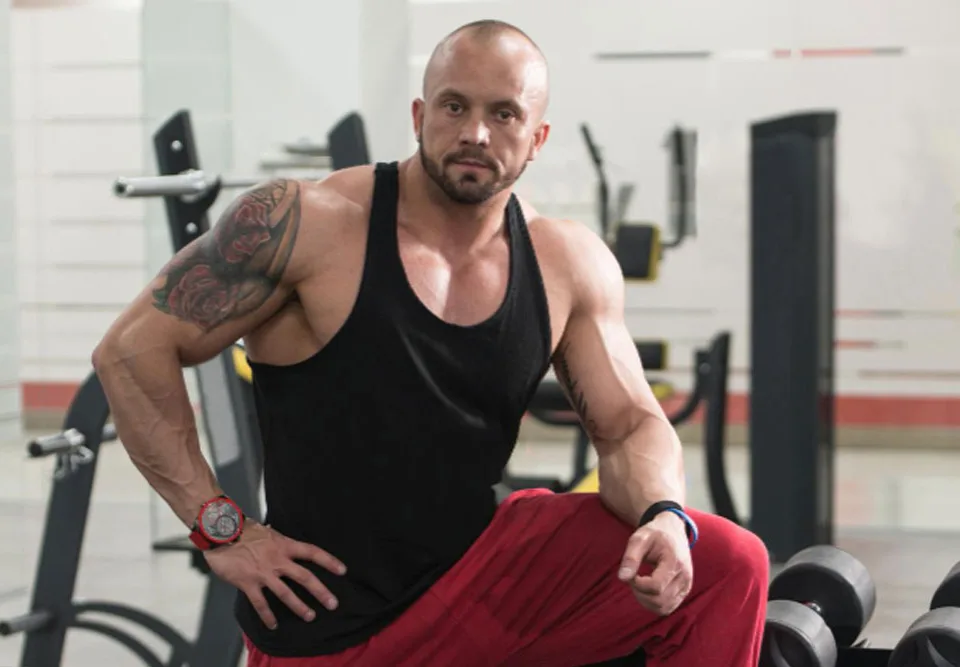7 Signs That You’re Not Getting Enough Protein
7 Signs That You’re Not Getting Enough Protein

Picture your body as a building site, and protein as the hardworking crew responsible for building and repairing every nook and cranny. Without these dedicated workers, the entire project would crumble faster than a poorly constructed sandcastle. Protein is the MVP (Most Valuable Player) in the game of life, performing a myriad of crucial roles.
From building and maintaining muscle mass to producing enzymes, hormones, and antibodies, protein is the jack-of-all-trades that ensures your body runs like a well-oiled machine.
How Much Protein Do You Need?
Ah, the age-old question that has confused even the savviest of nutritionists: “How much protein do I need?” Well, let’s put it this way, if your body were a car, protein would be the high-octane fuel that keeps the engine revving. The recommended daily intake is like the manufacturer’s suggested fuel grade, but just like vehicles, our bodies come in different shapes and sizes, with varying levels of activity and performance demands.
For the average adult, the general guideline is to consume around 0.8 grams of protein per kilogram of body weight. But hold on, we’re not done yet! If you’re an avid gym-goer or an athlete, your protein needs might be higher, akin to a sports car guzzling down premium fuel. And let’s not forget our older friends, as we age, our protein requirements often increase to maintain muscle mass and strength, much like an ageing vehicle needing a little extra boost to keep up with the youngsters.
Sign 1: Unexplained Fatigue and Weakness
Feeling like a sloth on a lazy day, even after a good night’s sleep? Constant fatigue and weakness could be your body’s way of waving a red flag, signalling that it’s not getting enough protein. Think of it like a construction worker trying to build a skyscraper with a limited supply of bricks, sooner or later, the project is bound to hit a pause.
When you’re running low on protein, your body struggles to produce the energy it needs to power through the day. Muscles become weaker, and even simple tasks can feel like a monumental effort.
Sign 2: Frequent Illness and Slow Recovery
If you’re constantly battling colds, flu, or other illnesses, and taking forever to bounce back, it might be time to review your protein intake. Protein and the immune system are well connected, acting as the bodyguard that protects you from invading pathogens.
Without enough protein, your body’s defence mechanisms become compromised, leaving you weak to every bug that comes your way. It’s like trying to fend off an army of invaders with a dull sword, you might put up a valiant fight, but the odds are stacked against you.
Sign 3: Hair, Skin, and Nail Problems
Imagine your hair, skin, and nails as the red carpet that showcases your inner radiance to the world. Now, picture that red carpet looking dull, brittle, and frayed, not exactly the glamorous entrance you were hoping for.
Protein is the building block for keratin, the structural protein that provides your hair, skin, and nails their strength and shine. Without adequate protein, these vital components start to suffer, leading to issues like dry, lackluster hair, brittle nails, and dull, ageing skin. It’s like trying to construct a masterpiece with subpar materials, the end result will never live up to its full potential.
Sign 4: Loss of Muscle Mass
If you’ve been hitting the gym like a gym freak but still can’t seem to build or maintain muscle mass, quickly analyse your protein intake. Muscle growth and repair rely heavily on protein, and without enough of this essential nutrient, your hard work at the gym is a waste.
Imagine trying to build a house without enough bricks – no matter how skilled the construction crew, the result will be a wobbly, unstable structure. Similarly, when you’re not getting enough protein, your muscles struggle to recover and grow, leaving you feeling like you’re spinning your wheels.
Sign 5: Increased Hunger and Appetite
Have you ever felt like a bottomless pit, constantly craving snacks and struggling to feel full? This insatiable hunger could be your body’s way of crying out for more protein. Protein helps you feel fuller for longer and reduces those pesky cravings that can derail even the most disciplined dieter.
Think of protein as the ultimate hunger-squashing superhero, swooping in to save the day when those hunger pangs strike. Without enough of this nutritional powerhouse, your body struggles to feel satisfied, leading to a never-ending cycle of snacking and overeating.
Sign 6: Mood Swings and Mental Fog
If you’ve been feeling like an emotional rollercoaster, with mood swings that would make a hormonal teenager blush, quickly analyse your protein intake. Protein plays a vital role in the production of neurotransmitters, the chemical messengers responsible for regulating our moods and cognitive function.
Without enough protein, these neurotransmitters can become imbalanced, leading to mood swings, irritability, and even mental fog. It’s like trying to find the way in a maze with a faulty GPS, you might make it through eventually, but the journey will be filled with frustration and wrong turns.
Sign 7: More sugar cravings
If you find yourself building relationships with sugary snacks and treats, even when you’re trying to eat healthily, it could be a sign. Protein helps to stabilize blood sugar levels, preventing those energy crashes and cravings that can send you straight to the vending machine.
Imagine trying to power through a long workday without any fuel in the tank – sooner or later, you’ll start eyeing up that candy bar on your coworker’s desk. By ensuring you’re getting enough protein, you’ll be better equipped to resist those tempting sugar cravings and stay on track with your healthy eating goals.
How to Increase Your Protein Intake
If you’ve been experiencing any of these telltale signs of protein deficiency, don’t worry – there are plenty of delicious and nutritious ways to boost your intake. Try these:
- Incorporate Protein-Rich Foods: Embrace the power of lean meats, fish, eggs, dairy, and legumes, and for vegetarians, plant-based protein sources like tofu and tempeh. These nutrient-dense foods will not only help you meet your protein needs but also provide a wealth of other essential vitamins and minerals.
- Snack Smarter: Instead of reaching for those empty-calorie snacks, opt for protein-packed options like Greek yogurt, nuts, seeds, or a protein bar.
- Boost Your Smoothies: Smoothies are a fantastic way to sneak in extra protein, especially if you’re short on time. Add a scoop of protein powder, the best nut butter, or even Greek yogurt to your favourite fruit and veggie blend for a nutrient-packed punch.
- Plan Ahead: Meal prepping can be a game-changer when it comes to ensuring you’re getting enough protein throughout the day. Batch cook lean proteins like grilled chicken, turkey, or lentils, and portion them out for easy grab-and-go meals and snacks.
Role of Steroids For Muscle Growth
Steroids for muscle growth work by increasing protein synthesis within the body, which leads to faster recovery times and more significant muscle development after intense workouts.
One major benefit of using steroids is their ability to help individuals push past natural plateaus. For those struggling with slow progress, steroids can boost stamina. This increase in endurance and recovery also aligns with adequate protein intake, another critical factor for muscle repair. As mentioned here about the signs, and to cope up, the right nutrients are essential for optimal muscle function. Combining a high-protein diet with steroid use can further maximize gains, ensuring that your muscles have all the necessary tools to grow and strengthen.
In conclusion, protein is the unacknowledged hero of our bodies, performing countless crucial roles that keep us functioning at our best. By being mindful of the signs of protein deficiency and taking steps to ensure you’re getting enough of this essential nutrient, you’ll be setting yourself up for optimal health, energy, and overall well-being.
Remember, a protein-rich diet is not just for bodybuilders and athletes, it’s a cornerstone of a balanced and healthy lifestyle for everyone. So, take your protein, and watch as your body thrives, your energy soars and your overall vitality reaches new heights. Surely, your body will thank you!



